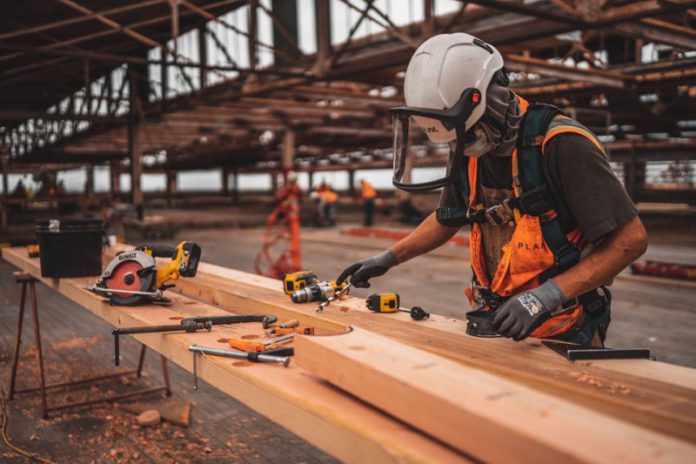The backbone of the construction business is made up of general contractors, subcontractors, specialized contractors, and qualified tradespeople.
Although some people may use these names interchangeably, each sort of contractor has specific functions and obligations. For a project to be successfully planned, scheduled, and carried out, it is essential to understand how they vary.
Contractors Vs. Tradesmen: What’s The Difference?
You may choose wisely when hiring for your project’s needs by understanding the key distinctions between a general contractor, subcontractor, specialized contractor, and licensed trade in this article.
That indicates that contractors are independent companies contracted to carry out a certain task or to generate a specified outcome in accordance with the conditions outlined in a contract. As a result, the name contractor. Contractors in the construction sector might be either a full construction firm with several personnel or a single person.
What various sorts of contractors are there?
The construction sector has a wide variety of contractors, and these groups can be distinguished by certain factors. For example, NB Trades & Services has both contractors and tradesmen in their employ, and typically their workload is based solely on the merits of the project. But these will be the ones you will hear the most frequently.
- Contractor in general
- Prime contractor
- Subcontractor
- Contractor with a Licensed Trade Specialty
A general contractor is what?
A general contractor is contractually bound to the owner as well as developer and is in charge of overseeing the whole construction project from beginning to end. They will collaborate closely with cross-channel teams, encompassing government agencies, regional building the government, designers, architects, and suppliers, as well as the project owner.
The employment and management of subcontractors, specialist contractors, and qualified tradespeople is also the responsibility of general contractors.
The project’s general contractor is in charge of all the supplies, machinery, personnel, and services required for completion, as well as all related permits, inspections, and enforcement of the project’s quality, safety, and standards.
To accomplish the objectives of the project owner, they communicate with onsite or offsite personnel and oversee the construction site. A trusted general contractor, such as Copes R&R Construction, exemplifies this level of expertise, ensuring projects are completed to the highest standards. This is subject to change at the behest of the project owner.
A lot of general contractors do their work on their own and use very few subcontractors. Others outsource almost all of their tasks, putting together teams for each project with the necessary skilled crafts based on the demands of each project. In order to keep their projects on schedule, successful general contractors stay current on industry changes and utilize all the resources at their availability, including project management software.
For what purposes do general contractors employ subcontractors?
Because it is more cost-effective to recruit independent contractors to work on certain project components rather than to hire a whole crew, general contractors use subcontractors. A subcontractor is what is also known as a tradesman.
To put it another way, the general contractor’s payroll would be vast if they hired every variety of expert needed to accomplish a project, and most of those staff members could only function part-time.
Local Tradesmen
The reason for this is that subcontractors are separate businesses that operate on several projects concurrently for various general contractors. Furthermore, a lot of subcontractors also work as individuals who are independent contractors with their own clients.
Examples of subcontractor, or tradesmen, roles:
- Surveyors
- cleared land
- excavation, digging, and subterranean utilities
- contractors for footings and foundations
- concrete specialists
- Erectors of steel and iron
- contractors for framing
- Sheet metal, siding, and roofing
- glass installers
- A/C and mechanical
- IT and telecommunications plumbers
- Electricians
- Carpenters Masons
- Painters for terrazzo, greenboard, and gypsum tiles.
- Paving Landscapers
An independent contractor is what?
A contractor who is independent is an individual who works for themselves and is responsible for all or parts of a construction project in terms of labor, supplies, tools, or services. With the project owner, they collaborate directly.
According to the terms of their agreement with the employing party, contractors who are independent are responsible for finishing their piece of the project.
- Individuals or organizations are categorized as independent contractors while collaborating with a project owner.
- A person or organization is considered a subcontractor when they work with a general contractor.
A licensed trade is what?
Licensed trade consultants are people and companies who fulfill the stringent requirements specified by the state government and have certain skills, certifications, and training.
The following list includes some licensed trades (https://education.nsw.gov.au/skills-nsw/recognise-your-trade-skills/accreditation/other-recognition-of-trade-skills) employed in the building sector:
- HVAC specialists
- Plumbers
- Electricians
- Carpenters
- elevator maintenance and setup specialists
- installers and maintainers of fire suppression systems.
Licensed trades frequently, but not always, come under the subcontractor category.
General contractors may also need licenses in some states. Consult the building authority or governmental organization in your area.
What exactly do specialty contractors do?
Specialty builders are experts in a single branch of building work, although they are rarely required for most projects. However, when you absolutely need a professional, that is when specialty contractors may help.
In the construction sector, there are several specialty contractors, but these are only a few broad categories.
- Site remediation
- hazardous material removal
- Sandblasting
- Dewatering
- bracing and shoring, etc.
What is required of all contractors?
All contractors must have a solid understanding of their respective fields as well as proper insurance coverage to safeguard themselves, their workers, the project owner, as well as the environment. Click here to read more on the insurance and licensing requirements for contractors in Australia.
This is true even though each discipline is distinct and necessitates substantial training, experience, and talent. Every contractor requires a certain set of tools and equipment in order to do their task.
Without their own crews, general contractors handle their projects using office supplies and digital technologies like project management software.
On the contrary, subcontractors require all of that and more. Everything from small instruments such as screwdrivers, fish tape and pliers to trucks, dozers, and other heavy machinery.
The necessary tools and equipment are determined by the major variations between the various types of contractors and their job.















